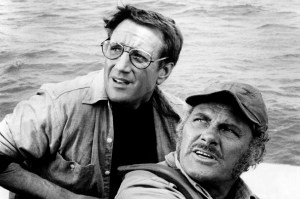At an improbable soirée in 1987, Mike Tyson was making aggressive sexual advances to the young model Naomi Campbell when the septuagenarian philosopher A.J. Ayer stepped in to demand that the boxer desist. “Do you know who I am? I’m the heavyweight champion of the world,” snarled Tyson. “And I,” replied Ayer, “am the former Wykeham Professor of Logic. We are both pre-eminent in our fields. I suggest we talk about this like rational men.” And while Campbell sensibly slipped away, the odd couple did just that.
The Chicago philosophy professor Agnes Callard relates this story not just to clinch the slightly self-serving professional point that philosophers aren’t always useless in real-life situations, but to propose that Tyson himself was probably delighted to find that an intellectual treated him as an equal rather than as a pugilistic meathead.
This respect, Callard suggests, is not just what is necessary for two philosophical interlocutors but a basis for equality that rarely exists in our thin-skinned, offense-taking culture, where, as she puts it, we live “in constant fear of disrespecting others and being disrespected ourselves.” Social media, you might well think, monetizes this fear, producing engagement through enragement and facilitating the fatuous exchange of diss and counter-diss. So much so that, on reading this superb book, I yearned to exchange our mimsy, anti-intellectual twenty-first-century mire of weaponized feelings, narcissistically confected offense, man-baby idiocy and unedifying celebrity beef for ancient Athens. There, at least if Plato’s dialogues are anything to go by, unconstrained inquiry predicated on mutual respect and the fearless debunking of cherished norms and prejudices was — imagine! — valued.
Callard goes further. She suggests that a higher form of love — not the erotic madness of romance, nor the conjugal felicity and other kinship commitments captured in the Greek term philia — is what Socrates offered when he undertook intellectual inquiry with locals comprised mostly of biddable boobs and hot aristos. We can use other persons to many different ends — bodies for sexual pleasure, for instance — but we engage most fully, most lovingly, with one another when we call on them to help engage in answering the questions that most baffle us. Or so argues Callard, following Socrates’s example. Done correctly, philosophy is not onanistic monologue but loving dialogue.
Open Socrates — quite the most gripping new philosophical book I’ve read in years — teems with insights into our world. We too often live like T.S. Eliot’s J. Alfred Prufrock, measuring out our lives in coffee spoons, distracting ourselves from the fundamental questions of life with work tasks, Netflix binges and Insta stories. Callard speaks of “taking life fifteen minutes at a time” and of thereby sidestepping answering what she calls “untimely questions” until it is too late.
The great virtue of the book is that the author makes this ugly old Athenian shock us anew with his insights into the things that really matter but that we are fearful of addressing — how to live, love and die. In each case she suggests that we moderns are doing them all wrong.
Take death. “How shall we bury you?” Crito asks, just before the fatal hemlock paralyzes Socrates’s heart. “In any way you like, if you can catch me and I do not escape you,” replies Socrates, who clearly doesn’t care about the fate of his posthumous body (a heretical thought for a Greek, considering how much of Homer’s Iliad and Sophocles’s Antigone are taken up with funerary rites). Callard suggests that the remark should challenge our twenty-first-century fetish for corpse veneration. By our funerary practices we ignore Socrates’s wisdom that from death onwards the soul is decoupled from the body, either through annihilation or through, as he put it, being relocated “to another place.” Either way, Crito can’t bury Socrates. He’s long gone. In 2,500 years we haven’t sufficiently learned this truth.
Or consider politics. In one dialogue, ugly Socrates chastises the handsome, rich, dimwit dandy Alcibiades (imagine Hugh Laurie’s King George from Blackadder intellectually routed by a braniac Baldrick) for his loony notion that he is fit to rule the Athenian people. Socrates, superbly, gets the young chump to see the folly of his career path, arguing: “You are wedded to stupidity, my fine friend, of the vilest kind; you are impeached by your own words, out of your own mouth; and this, it seems, is why you dash into politics before you have been educated.” If only some latter-day Socrates had taken recent political leaders aside and had that talk, one can’t help but feel the West wouldn’t be in such a fix.
Towards the end of the book, Callard reflects on her sadness at the premature death of a philosopher friend, Steve. What she misses are their conversations, how what they did together in Chicago coffee shops was a continuation of what Socrates did millennia earlier. What she describes is a grand passion, not so much for Steve but for philosophy itself. “Whereas we usually ask ourselves what can get done in the next fifteen minutes, or the next few years, or perhaps our whole lives, when we step into the role of philosopher we disregard all such clocks.”
The love affair of philosophy for her is to ask questions too big for one person to answer — such as “Is the soul immortal?,” “What is thinking?” or “How can love be both rational and attached?” Indeed, the central claim of her book is: “It is in the presence of others that something becomes possible that isn’t possible when you’re alone.” Meditating alone on the meaninglessness of your life, as Tolstoy did in A Confession and through his eponymous bureaucrat in the Death of Ivan Ilyich, is apt only to plunge you deeper into self-pitying folly. Not so when you’re looking into the abyss and discussing the prospects for an afterlife (as Socrates did in his last moments) with friends who love you.
Instead of the four horsemen of today’s apocalypse — demagoguery, fury, ostracism and abuse — we need, Callard argues, the Socratic virtues of humility, reflection and convivial truth-seeking. Whether we have the courage to emulate her hero is another matter. Philosophy is not for wimps.
History doesn’t relate what Tyson and Ayer talked about that night, but I like to think they debated the fatuousness of abstract thought with special reference to Tyson’s most quotable philosophical aperçu. “Everyone has a plan,” he once said, “until they get punched in the mouth.” Moral? Not all of us can be Socrates. In our world, mindless violence often trumps mindful philosophy.

























